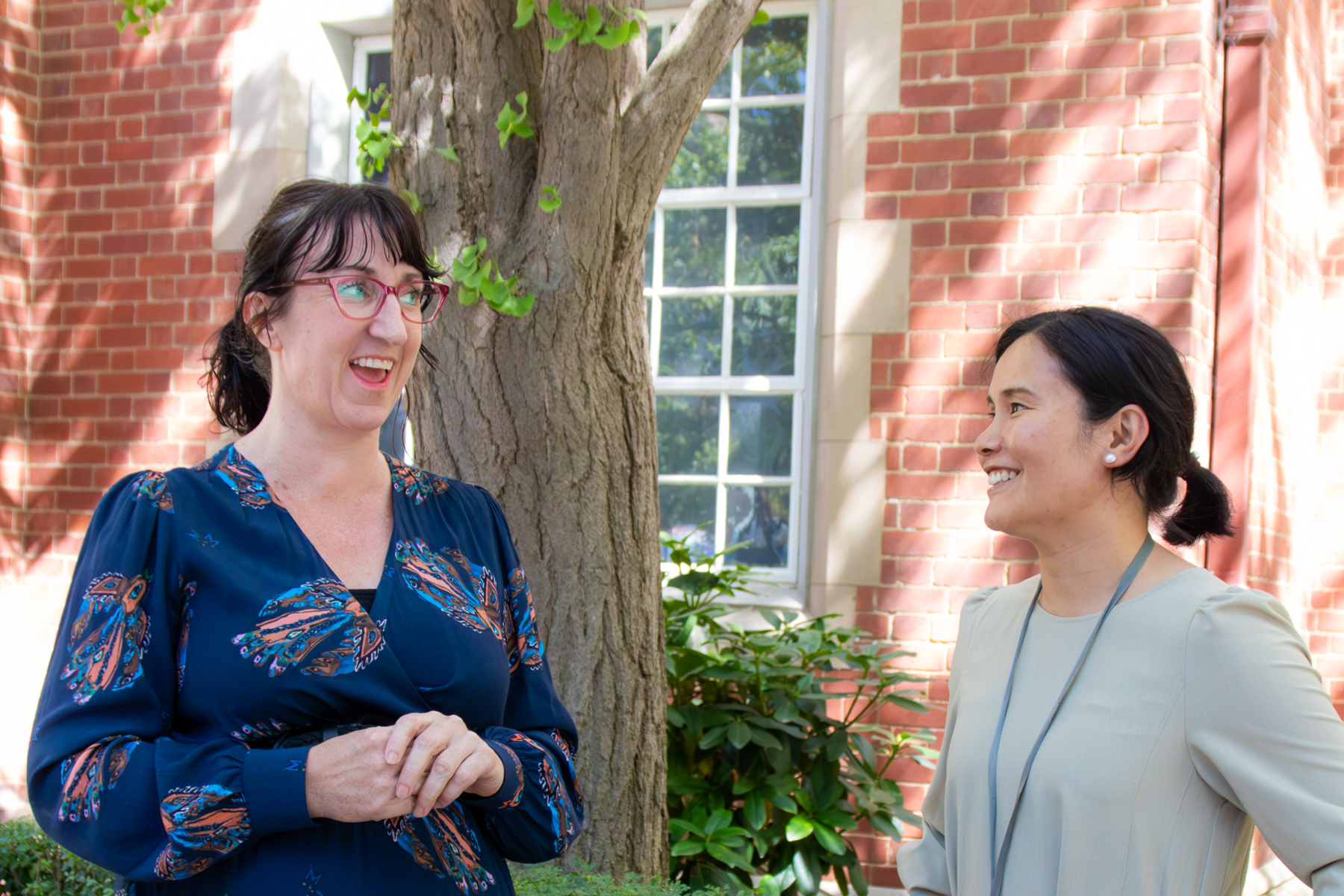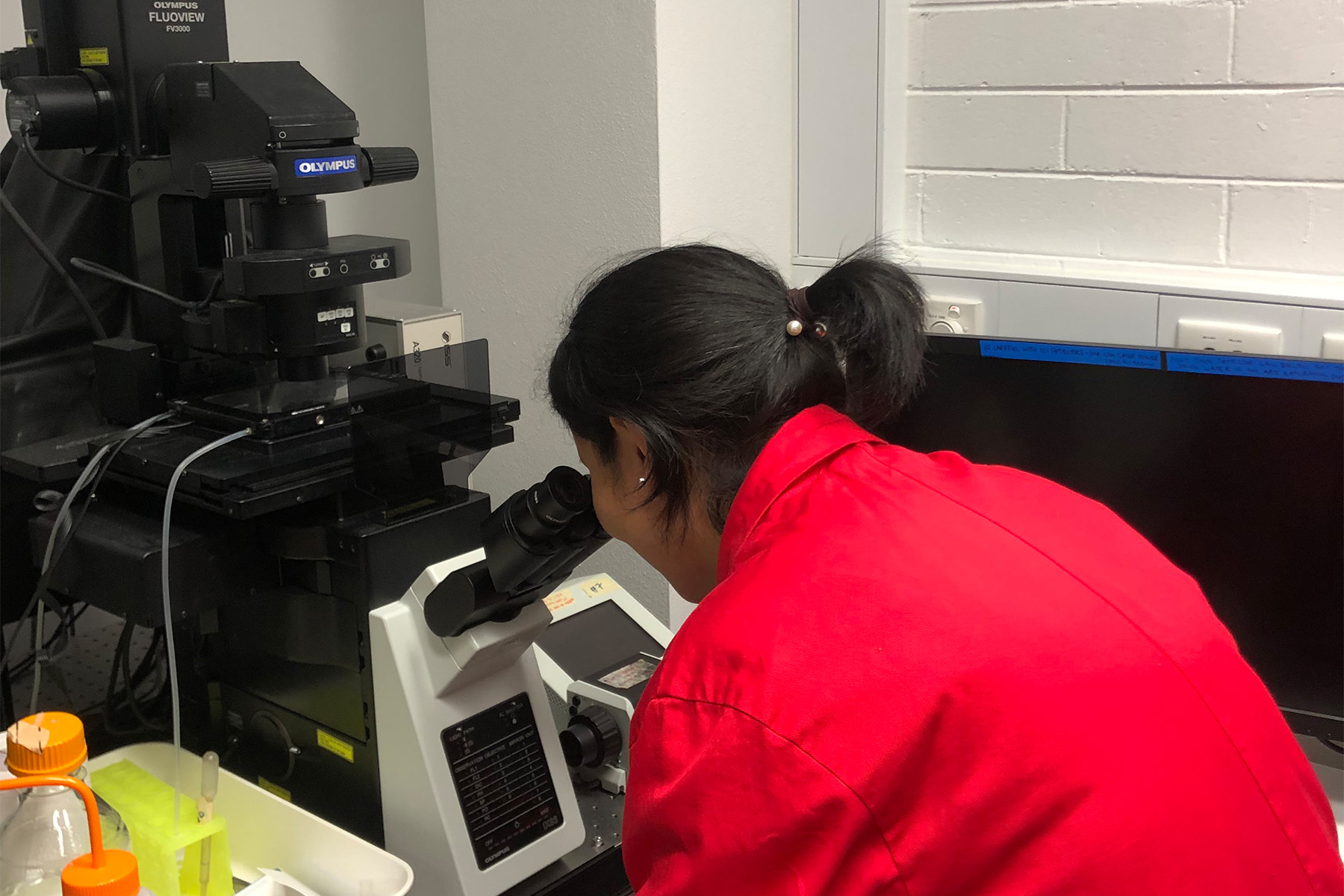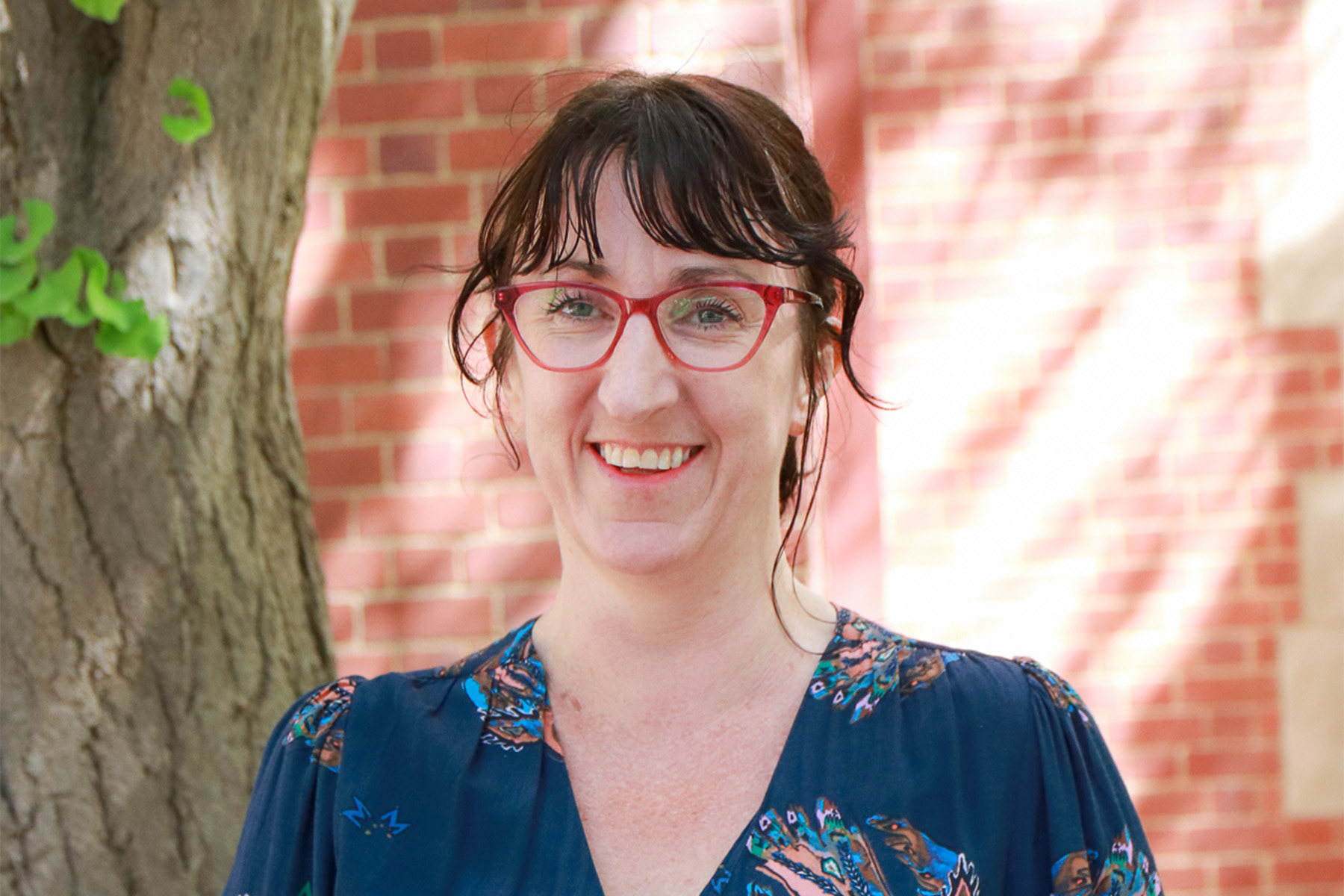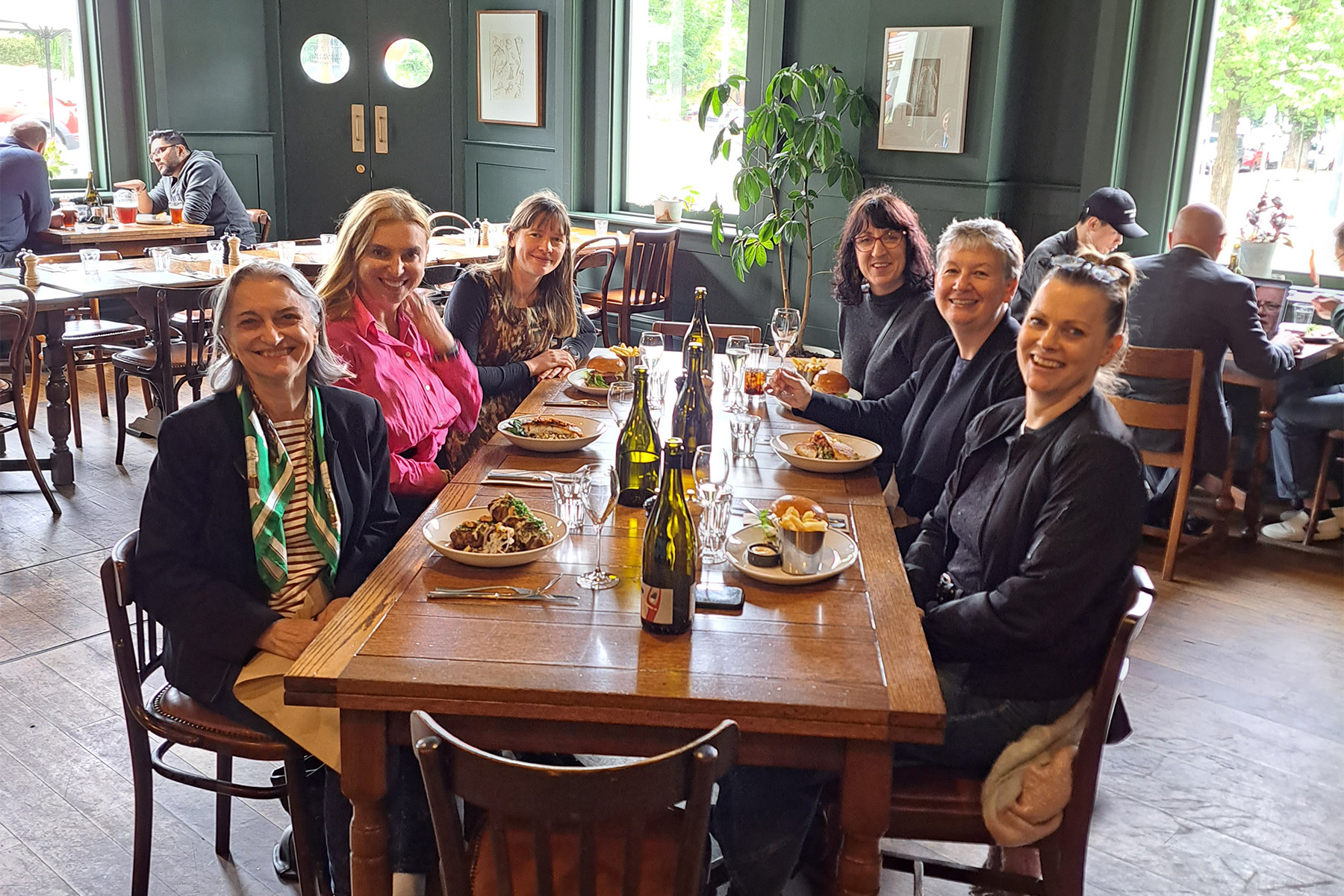
Politics & Society
I’ve seen war and beyond the horror lies a shared humanity

To mark International Women’s Day, a chemist and a physicist discuss the challenges of careers in male-dominated fields and the women who inspire them
Published 7 March 2024
DR JIEQIONG LOU: I grew up in a small village in Southeast China, with limited access to books and TV, so I spent much of my childhood outdoors. This sparked a lifelong fascination with nature and how things work.
Most of my school peers found work in local factories, but my parents encouraged me to attend university. Now, I think I’m the furthest away anyone has ever moved from the village.

My mother never had the chance to go to school; she doesn’t understand what I do, but she’s proud of me.
I enrolled in computer science at Lanzhou University. It was a ‘hot topic’ in the early 2000s, with more job opportunities. But I didn’t enjoy it, so I switched to plant biology.
As a biophysicist, I apply physics principles and methods to investigate how our cells work, especially how they respond when things go wrong, like when our DNA gets damaged.
I’m working to improve our understanding of how genes are organised and how proteins move around inside our cells.

Politics & Society
I’ve seen war and beyond the horror lies a shared humanity
ASSOCIATE PROFESSOR GEORGINA SUCH: I wear several hats at the University of Melbourne. My research focus is developing nanoparticles that respond to their surroundings for a range of applications from drug delivery systems through to industrial coatings.
I love learning and teaching. My father, an industrial chemist, was a natural teacher who encouraged my curiosity. If I had a stain on my clothes, he’d say, “How can we break down this stain? Let’s do an experiment.”.
So, I say to my students: “Go into the lab and play; be creative and find new ways of thinking about things.”
In 2021, I became the faculty’s first Associate Dean of Diversity and Inclusion and I was recently asked to lead the Athena SWAN program for the University.
This program improves gender equity in the higher education and research sectors through a range of initiatives addressing areas like career interruption and promotion.
We are making important progress, for example, by establishing women-only appointments in some research fields.

JIEQIONG: Physics is still a male-dominated field, but I’m lucky to have worked with wonderful women throughout my career.
During my undergraduate degree, a female lecturer encouraged me to pursue my PhD, and I’ve had two female postdoctoral supervisors, which is unusual in physics.
Professor Katharina Gaus was the first, at the University of NSW, and now I’m a Senior Postdoctoral Fellow in Associate Professor Elizabeth Hinde’s research group.
GEORGIE: One of the most inspiring women in science I know was the Head of Chemistry when I joined the University: Professor Frances Separovic. In this role, Frances was tenacious, she got stuff done. She’s also unapologetically authentic, which I appreciate.

Health & Medicine
Is menopause bad for your mental health?
Some academics climb the ladder by acting how they think is expected. But Frances would say things like, “I was so nervous when I did my first few lectures, and I still get nervous sometimes.”
As a junior academic, hearing a Head of School say that helped to normalise the challenges I faced, which encouraged and inspired me.
I was hosting a University event the other day, and my daughter was with me, because it was school holidays. And I think that’s ok, that’s authentic.
The sooner we all appreciate and accept that our working lives must work for our families, the better.
JIEQIONG: Balancing work responsibilities with family has been my biggest challenge as a woman in science. I became pregnant with my daughter during my first postdoctoral fellowship and I remember being scared to tell my supervisor.
She didn’t have children, so I wasn’t sure how she would react, but she was generously and genuinely supportive, which was a relief.
Male colleagues have supported me too. When I was considering applying for an Australian Research Council Future Fellowship, Associate Professor David Simpson, another biophysicist, encouraged me and shared lots of tips.

GEORGIE: It’s critical to have senior colleagues and supervisors who take mentoring seriously, particularly for women and underrepresented groups. People who build mentoring into their workday – who take time to ask, “How’s your day been?” or “What are you working on?” – provide much-needed support and advice to younger academics.
Pointing out opportunities and offering practical assistance helps women and underrepresented communities feel seen, that they belong, and that they deserve development and advancement.
Professor Colette Boskovic was my mentor when I started here. I now run the faculty’s mentoring program, and Colette still puts her hand up to mentor every year.
She has incredible ongoing relationships with her many mentees.

Business & Economics
By investing in women now, we will accelerate progress
We should all strive to be like that. Maybe you can’t go out of your way for others every day, but you could do it once a week.
JIEQIONG: When I reflect on the inequity women scientists faced in the past, it reminds me that things have improved, thanks to investment in equity programs and initiatives, and it reinforces the importance of supporting other women.
We all need to ensure women in science are not overlooked or underappreciated, which has happened so frequently that it has a name: the Matilda Effect.
For example, Chien Shiung Wu was a Chinese-American physicist who made significant contributions in the fields of nuclear and particle physics. She performed an experiment that proved the theory of Tsung-Dao Lee and Chen Ning Yang regarding the violation of the parity in weak interactions.
In 1957, the two men received a Nobel Prize, but Wu missed out.

GEORGIE: I think of Rosalind Franklin, a British chemist, who produced X-ray crystallography images that were crucial to the revelation of the double helix structure of DNA molecules.
In 1962, the related Nobel prize went to three men whose work depended on Rosalind’s discoveries.
Women are still overlooked in meetings and boardrooms every day, and not just women who are understated or introverted. A woman will say something insightful in a strategy session, but they’re disregarded.
Ten minutes later, a male colleague will say the same thing, and their comment gets amplified. It’s important to point this out when it happens – and it happens frequently.

Sciences & Technology
From art restorer to DNA explorer
Over the next five years, I aim to boost the visibility of diverse role models across the University. Seeing is believing.
When I was a postdoc, the decision to have children was difficult. I remember thinking, “Am I going to be able to do all of this?”. Seeing other women who were managing the balancing act helped.
I’m passionate about creating a University community that truly represents our society. I want all undergraduate students to see people like themselves in senior roles, so everyone can aspire to be a professor or a leader in the University – because we will all benefit from greater diversity in our decision-makers.
JIEQIONG: Role models are so important; they help us dream big and set goals. I aim to continue exploring how nature works, to strengthen the foundation of knowledge for the next generation to build on.
I’m ambitious, and I feel lucky to be in a university environment that supports women so actively.
GEORGIE: My advice to women in science is to utilise available resources and be brave: if you’re inspired by a senior academic, ask them to have a coffee with you. People ask me and I think it’s fantastic.
The best thing women can do is grow our networks and our support system.
Associate Professor Georgina Such (School of Chemistry) is the Associate Dean of Diversity and Inclusion in the Faculty of Science and the Athena SWAN Lead for the University. Dr Jieqiong Lou is a Senior Research Fellow in the School of Physics, and recipient of the Faculty’s inaugural Excellence in Diversity Fellowship.
- As told to Jo Piltz and Rebecca Colless
Banner: Supplied